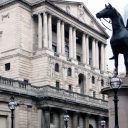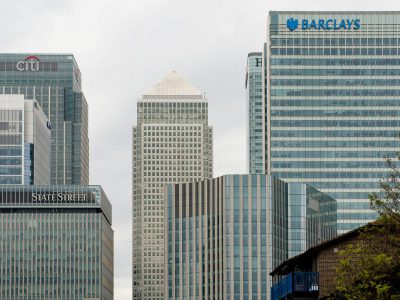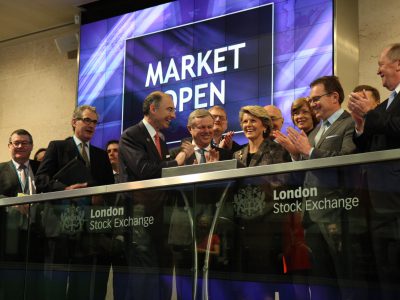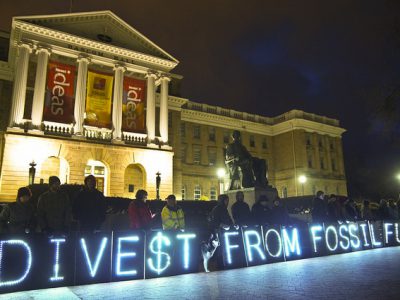What good is finance?
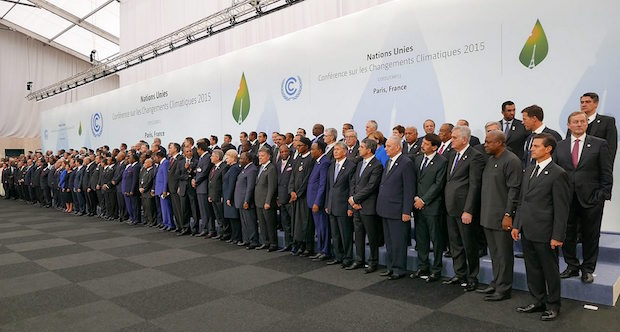
Paris climate conference. Wikimedia Commons, some rights reserved.
Is it possible for citizens to rein in the financial system and demand that it works in their interests?
The finance industry is critical for our future. Without an effective system which can collect our savings, and invest them in sustainable projects, there is little hope we can address the economic, social and environmental challenges of the twenty first century.
Yet the forces of finance are often considered the enemies of sustainable development. Indeed many campaigners might look at the activity of financial markets in terms of the irresponsible behavior of companies which it sanctions and encourages, and conclude that, if we are to create a sustainable responsible economy, financial institutions need to be opposed. Sometimes they may be right in that contention.
But here is an extraordinary event that speaks to another perspective. In the run up to the Paris Climate Conference delegates received a petition from the pension funds and fund managers of the world. There were 348 of them and they represented $24 trillion in capital. That is about 25% of the entire investment of the world. They were calling for a tough line to be taken to ensure a sustainable planet; that carbon should be taxed, and subsidies eliminated. In other words the finance industry, often seen as the bogeymen of progress, was more radical in its demands than were the policy makers.
So how come?
The most immediate reason was that the customers of our financial institutions had asked them to take action. They had lobbied for change, and, within those institutions were staff with the skill and the influence to take a more progressive stance. Indeed one of the remarkable changes of the last generation in finance has been the development of responsible investment, such that now, through the Principles for Responsible Investment (PRI), $50 trillion of investors have now made at least some commitment to responsible investment practice.
But these developments are not strange aberrations to the laws of economics. They are not a sign that capitalism has, out of thin air, developed a conscience. Rather they are a sign that the institutions of invested capital, just like the institutions of democratic politics, should reflect the needs of the societies they serve. But, just like political structures, they will not do so unless they asked to do so.
Here is the perspective that many miss. Capital in the early twenty first century is not owned by a few tycoons. Most of the shares of most of the companies on the stock exchange belong to pension and investment funds. Typically those funds represent the savings of millions of ordinary workers, who have set aside their capital in order to provide an income in retirement. It is they, or put another way, it is we who are the new capitalists. The biggest pension fund in Europe represents the public servants of Holland, in the UK it is telecom workers, in the US it is university teachers and the public servants of California. The largest block of capital in Norway is its sovereign wealth fund; there to benefit all the people of that nation. It is these millions of people whose capital is represented on the stock exchange. They are the people for whom every CEO insists they are “creating shareholder value”. Of course such savers need the companies they invest in to be profitable; no profit, no pension. But it makes no sense to generate profit without regard to environmental or social consequences. Savers won’t enjoy a pleasant retirement in a world whose climate is out of control. So if financial systems were working properly, responsible investment should be the norm and the petition to the climate negotiators the rule, not the exception.
But this is only going to happen, if citizens-savers ask that it happens. All of which should be familiar territory to those who subscribe to Open Democracy. We all support democracy and human rights; but we also know that these will only be delivered if we demand them. Indeed it is that combination of open institutions and active engagement which creates a civil society.
As in politics, so in economics. Every company gives some sort of report on its activities, and every board member stands for some sort of election. But how often do the share owners, (that is you, me and our families) engage in that process? If we did, the prize would be huge; a civil economy, reflecting the same sort of checks and balance as civil society.
Here is a story which illustrates how big the prize might be; but also how far we have to go. It is about a shareholder campaign, run by a remarkable NGO called Share Action. Its aim was to encourage the pension-funds which owned a significant proportion of a large pharma company, to tell that company to desist from suing developing country governments. By suing those countries the company risked undermining the global agreement which gave access to medicines to poor people in the developing world—an agreement which has saved countless lives. I met a fund manager afterwards who had been lobbied. “Wow” he told me “that was a successful campaign. I got more letters, calls and emails on that issue than I have had on everything else for the past three years”. “And how many emails did you get”, I enquired. “Six” he replied. Six emails changed the world.
The tragedy is how little activity takes place. I recently visited a world leading university that is committed by its statutes to promoting research. Within its endowment is one major research company. The company’s executive pay system penalizes the CEO for investing in research, but not for failed acquisitions—that is against the very ethos of the university. Yet the shares of their endowment will have voted in favour of that remuneration package, because no one will have brought it to their attention.
The finance industry is largely indifferent to the stewardship of the companies it owns on our behalf – and this is a huge gap. There is, for example, one US investment fund which spends over $130 million in marketing how responsive it is to look after savers’ money; yet it employs only one person to vote the shares of the 10,000 companies it owns on their behalf.
But this indifference is also a huge opportunity. In the past, the finance industry did not serve us well. This is apparent in its poor delivery of the vital services it should be providing to us.
But this problem can be solved. “The price of liberty”, as Thomas Jefferson apocryphally remarked, “is eternal vigilance”. The same price needs to be paid for a finance industry which delivers responsible investment, and responsible services.
David Pitt-Watson explores these issues further in a book entitled What They Do With Your Money, co-authored with Stephen David of Harvard and Jon Lukomnik of the IRRC Institute





